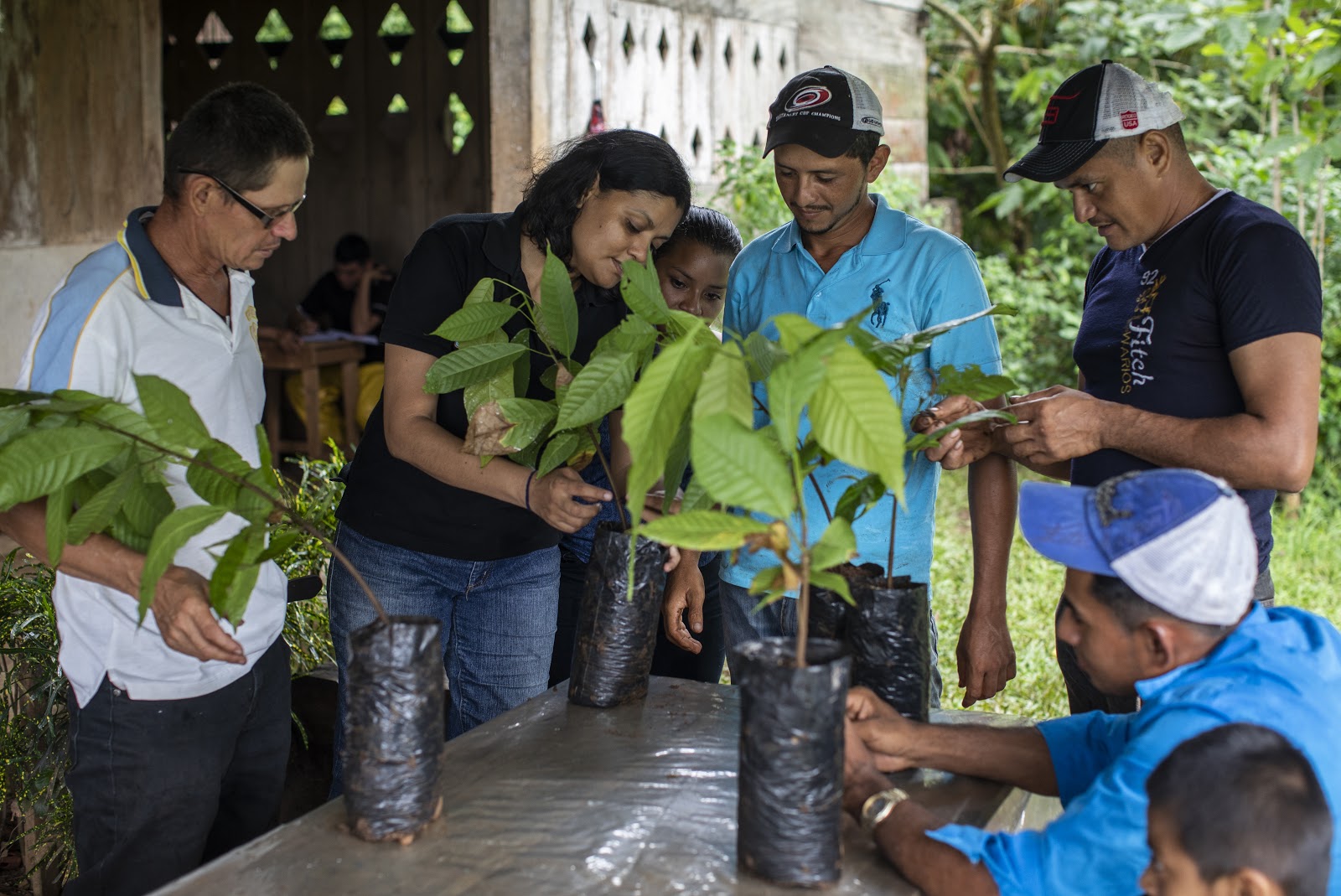Photo above: Solidaridad training in cocoa planting and harvesting in Nicaragua, as part of the Paisajes Sostenibles (PaSos) project, implemented under the Advocacy for Change programme
One of the main premises of Advocacy for Change is that achieving genuine sustainability on a large scale not only requires supporting producers but also stimulating an enabling policy environment. We have therefore geared our efforts in this programme towards increasing civic space, strengthening the capacity of local stakeholders, and fostering gender inclusivity. Our multi-stakeholder dialogue approach and ‘boots and brains on the ground’, with a trusted and neutral position in the local communities where we work, were key in enabling our advocacy efforts. In this article, we highlight a few examples of projects implemented under the AfC programme, but this overview is by no means complete.
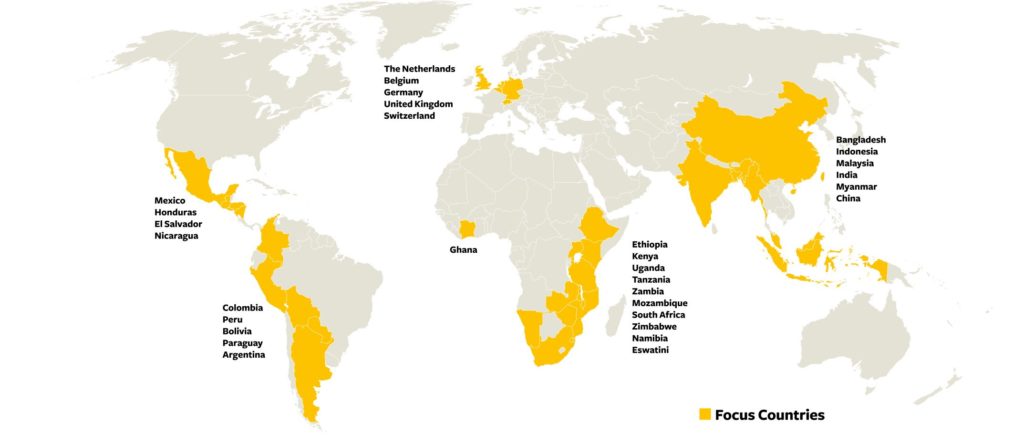
Capacity strengthening
Experience shows that the underrepresentation of civil society organizations and target groups in policy dialogue leads to unequal results. To overcome barriers to participation, especially of vulnerable groups, and to promote inclusive dialogue and participatory decision making, Solidaridad employed three mutually reinforcing approaches: 1) Enabling meaningful participation of civil society and producer organizations in policy dialogues; 2) Interacting with public and private decision makers to create better suited policies; and 3) Establishing multi-stakeholder platforms (MSPs) and other dialogues, thus increasing mutual understanding and facilitating joint action to address sustainability issues.
“One main success factor for effective Lobby & Advocacy strategies is the social capital built up by Solidaridad, which includes local ownership, expertise, networks. […] Experienced and highly qualified staff and research capacity, Solidaridad’s large (international) network and having genuine partnerships based upon equality are other success factors.”
End evaluation 2020 of Advocacy for Change by Aidenvironment
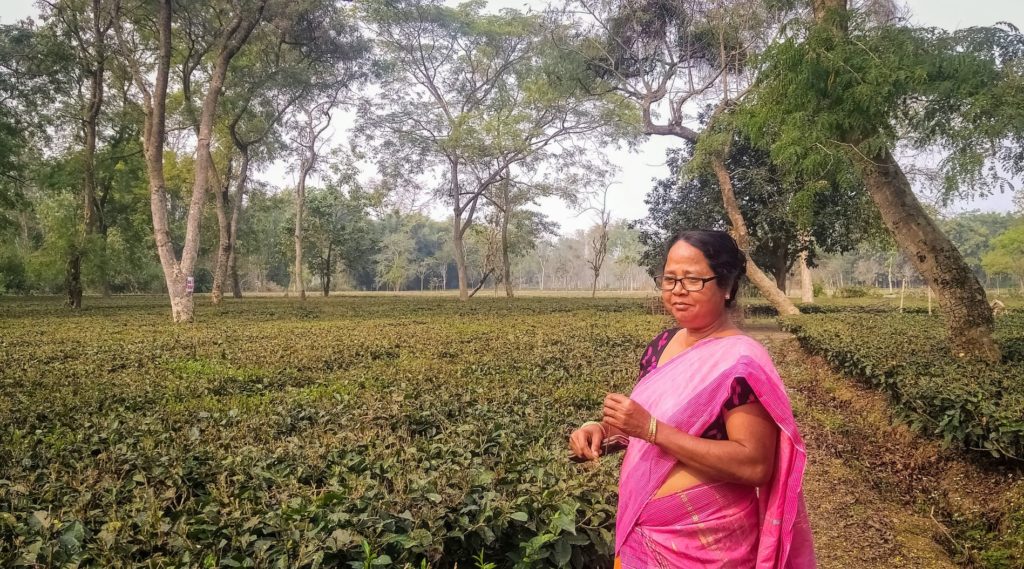
- The Trinitea project in India was aimed at developing a certification standard that meets the needs of small-scale tea growers, in joint cooperation between Solidaridad and the Indian Tea Association. The development of smart self-assessment systems for smallholder tea growers is hereby aimed to assist them in making informed production and marketing decisions, geared at improving their overall bargaining position and operational efficiency.
- Solidaridad has lobbied for the lifting of the 2017 ban on artisanal and small-scale gold mining (ASM) in Ghana, and has worked closely with and advised policy makers in the development of new legislation on ASM (the Multilateral Mining Integrated Programme (MMIP)).
- We have actively advocated for better due diligence legislation in Europe, for instance, in the cocoa sector, calling for an explicit inclusion of the right to a living income and living wage. Furthermore, Solidaridad has co-developed a global approach for the European Garment Sector for better wage management and training on purchasing practices, value chain transparency and due diligence.
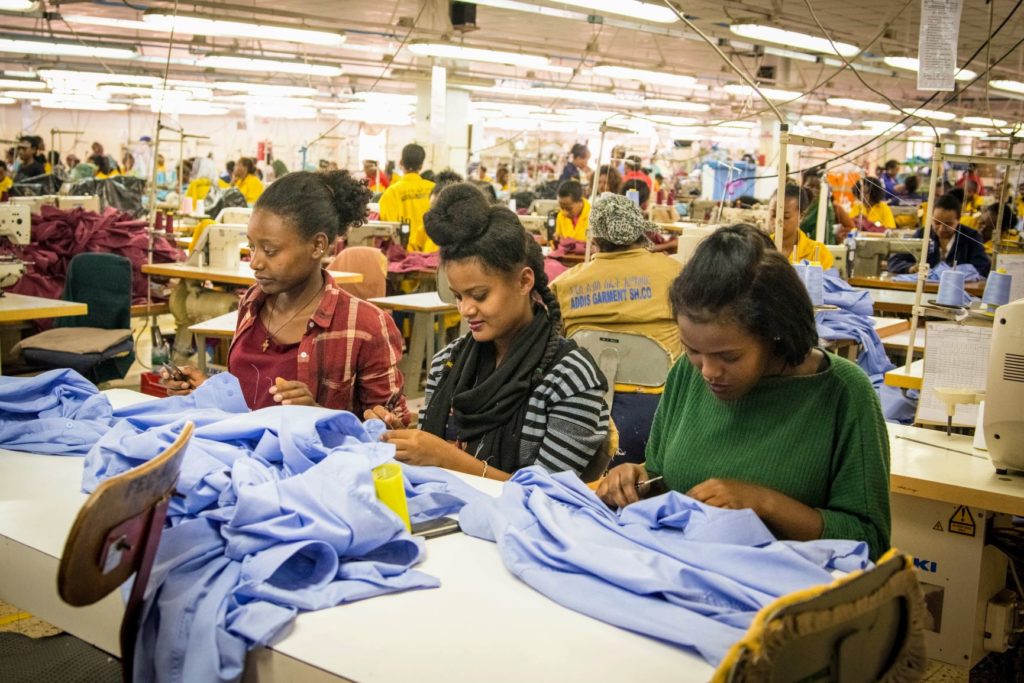
Fostering civic space
Worldwide, civic space in many countries is heavily repressed or limited. Civic space is essential for the well-being and development of people and societies, and this formed an important part of the AfC programme. Solidaridad is widely seen as a neutral and a-political partner by the variety of stakeholders we engage with, including businesses, governments, local organizations, and the farmers, miners and workers. This neutral and trusted position has enabled Solidaridad to create civic space and room for peaceful dialogue, thus helping to increase the trust and collaboration between partners and stakeholders.
- In Ghana, Solidaridad has facilitated a dialogue process over land and tree ownership between farmers, land owners and traditional leaders. This issue has been heavily contested between these groups for years. Solidaridad played a neutral role to share knowledge and technical advice on land documentation and ownership security, thus creating awareness on land documentation, land acquisition processes and women’s access to land. The stakeholder dialogue has reached consensus and delivered significant input to the lease agreement document, contributing to the land ownership security of cocoa farmers in the region.
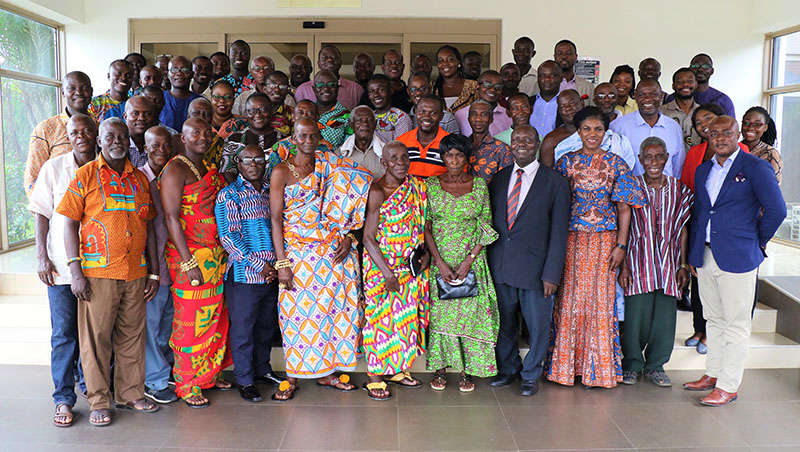
- Our project Paisajes Sostenibles (Sustainable Landscapes – PaSos) in Nicaragua and Honduras is aimed at fostering sustainable landscapes in palm oil and cocoa in the region. A multi-stakeholder approach has been essential to stimulate inclusive and peaceful dialogue and increase civic space amidst regular conflict between the local communities and private sector actors. This project has been featured in the recent digital publication Dialogue & Dissent by the Dutch Ministry of Foreign Affairs.
“The biggest change I’ve seen in a life surrounded by oil palms was in 2017 with the PaSos programme from Solidaridad. It is very difficult to agree with so many people, but we are talking and little by little we are finding things in common. We all agree that for everyone’s sake we must ensure better management of all our shared resources.”
Sonia Maribel Ramirez, member of the Unified Peasant Movement of the Aguan (MUCA)
Gender inclusivity
Another key element of the AfC programme was addressing barriers to equal participation. Solidaridad has worked actively with men and women to enable and foster transformative change towards gender inclusivity. Moreover, we have developed a comprehensive gender inclusivity mainstreaming approach and strengthened the ability of civil society organizations to integrate, implement, evaluate and learn from their gender strategies.
“Any work undertaken by women should provide a business case for them; trainings are wasted if they do not have the space to develop business opportunities and empower themselves economically. Providing support in leadership, and political and social empowerment, should go hand in hand with guidance towards obtaining an income.”
Ángela Peláez, manager of RGC Coffee in Colombia, on the importance of advocating for women’s empowerment in decision-making, entrepreneurship and leadership
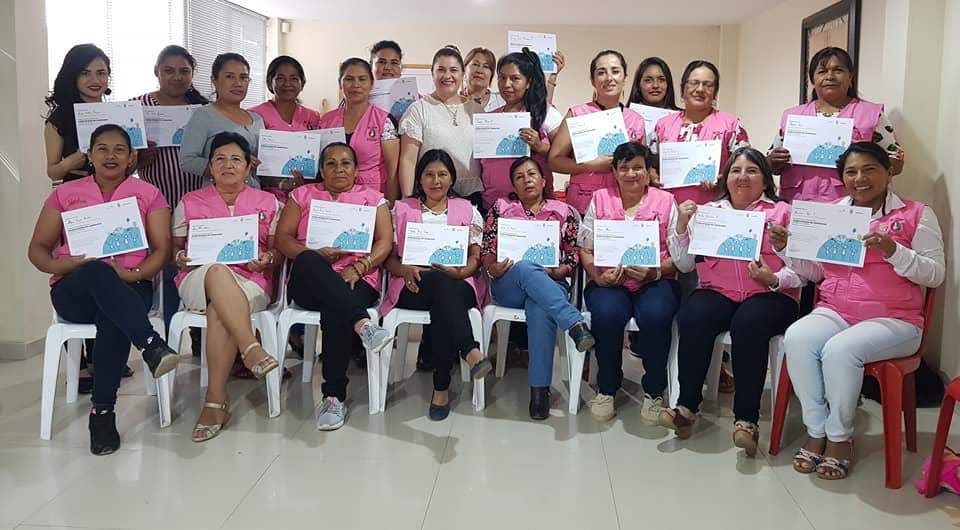
- In our policy influencing work, gender inclusivity was successfully put on the agenda of a range of global and national policy makers, among which the European Partnership for Responsible Minerals, CEN/ISO standard for sustainable cocoa, the International Cocoa Organisation, and the Better Cotton Initiative. In response, these actors have started developing strategies to promote gender equality.
One example of our work in policy influencing is Solidaridad’s contribution to the Stakeholder Statement on Implementing Gender-Responsive Due Diligence and ensuring the human rights of women in mineral supply chains. This statement is endorsed by the OECD and signed by over 30 stakeholders.
- The Women in Cocoa & Chocolate Network (WINCC) was launched in 2016 to empower women and their position in the cocoa sector. WINCC has been organizing regular meetings since its inception, aimed at strengthening leadership skills to increase the voice and influence of women throughout the cocoa and chocolate sector, and hereby contribute to a more sustainable value chain.
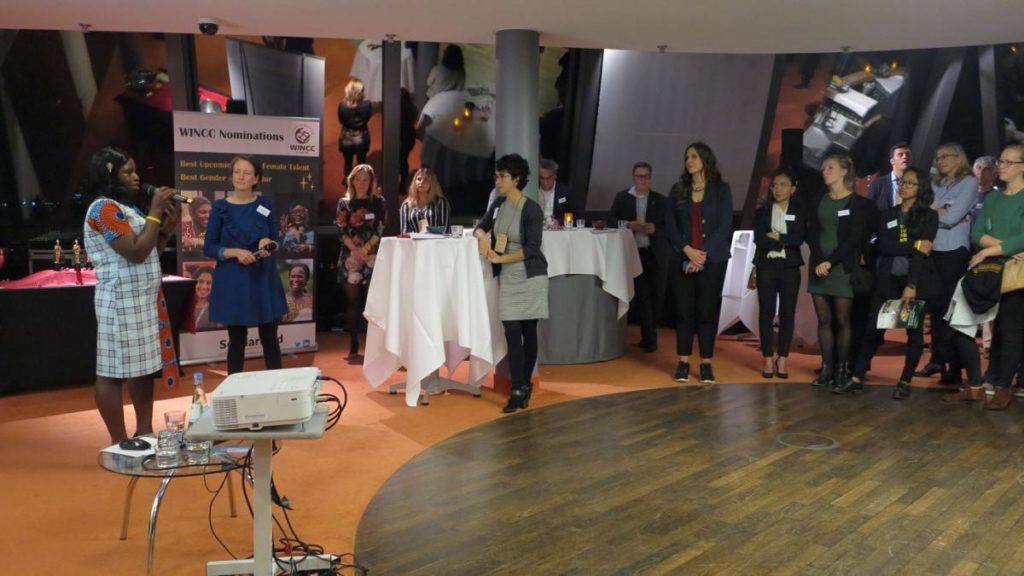
- Solidaridad has worked towards strengthening the position of the pallaqueras (female miners who work on the slopes and outskirts of mines to collect minerals left over or thrown away by the formal miners, who are generally men) in Peru and women miners in Bolivia. Whilst these women play an important role in the mining sector, their voices are often unheard in policy decisions and their socio-economic situation is vulnerable. Solidaridad, through the AfC programme, contributed to the reactivation of the Red Nacional de Mujeres y Minería ( National Women and Mining Network) that gathers and represents women miners from all over Bolivia. The project, named Qori Suma, has built capacity in more than 440 women in leadership, associativity, media training, and how to face violent situations. A milestone was reached in February 2020, when these women launched their own policy brief agenda with recommendations to improve living and working conditions for mining women in Bolivia.
Lessons learnt from Advocacy for Change
The lessons learnt in the Advocacy for Change programme have laid a strong basis for the RECLAIM SUSTAINABILITY! programme, to be implemented in 2021-2025 in cooperation with our consortium partners Fairfood, Business Watch Indonesia, and TrustAfrica.
Our main lessons learnt from Advocacy for Change include:
- Multi Stakeholder Partnerships are an effective way to engage different stakeholders and deliver on a shared agenda;
- “Boots on the ground”: being seen as a credible, reliable and neutral player, with a neutral, a-political positioning and a constructive (pragmatic) approach is key to success;
- In order to achieve sector transformation and to have sustained impact at scale there is a need to address the underlying systemic drivers;
- It takes time to change policies and regulations and it takes time to set-up MSPs, conduct research, and build relationships;
- Strategic alignment between global and local interventions accelerates change.
With our RECLAIM SUSTAINABILITY! consortium, we strive further towards achieving genuine and inclusive sustainability in global value chains, where the voices of farmers, miners, workers and citizens are well represented in decision making, civil society is strengthened, and gender and social inclusion are prioritized. Stay tuned for updates on this new programme!
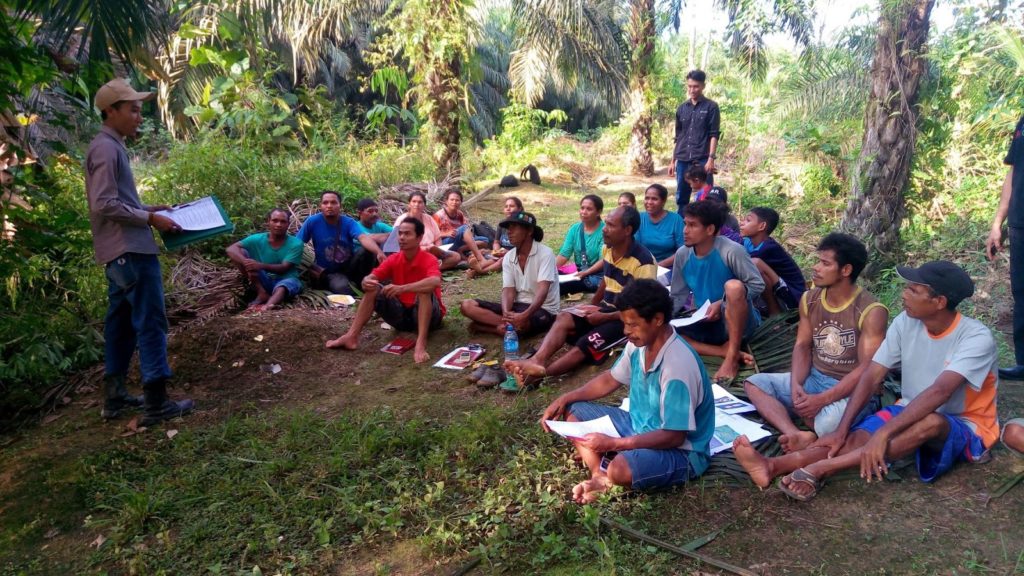
With our RECLAIM SUSTAINABILITY! programme, we continue our efforts towards a sustainable palm oil sector.
Strategic partnership with Ministry of Foreign Affairs
Solidaridad has implemented the Advocacy for Change (AfC) programme under the Dialogue and Dissent policy framework of the Dutch Ministry of Foreign Affairs. In a strategic partnership with the Ministry, we have worked together on creating a larger impact and greater equality in international supply chains, with a focus on capacity building and local ownership.
The Advocacy for Change programme was implemented by Fundación Solidaridad Latinoamericana, Solidaridad West Africa, Solidaridad Southern Africa, Solidaridad East & Central Africa, Solidaridad Asia, Solidaridad Europe, and Business Watch Indonesia, the lead implementation partner in Indonesia.

